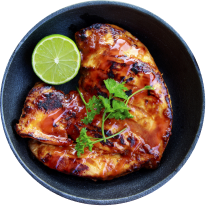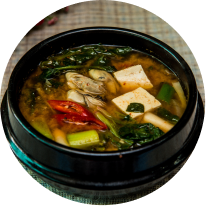Discover the ancient Greek roots of the Mediterranean diet, the key ingredients and flavors in Greek cuisine, and the health benefits of adopting this dietary lifestyle.

## Ancient Greek Cuisine: Foundation of the Mediterranean Diet The ancient Greeks placed significant emphasis on establishing a civilized lifestyle through food and communal eating, considering it a social event that brought people together [1]. Key ingredients like bread, wine, and olive oil held immense importance in ancient Greek culinary traditions and continue to be vital components of modern Greek cuisine. For instance, olive oil , which was used in almost every item on the ancient Greek table, remains a crucial element in Greek cuisine today, with Greeks being the highest consumers of olive oil in the world. Honey and figs were also essential in ancient Greek food ideology and are still integral parts of modern Greek cuisine, reflecting the continuity of these culinary traditions over time. However, there has been a notable shift in meat consumption among modern Greeks compared to their ancient counterparts, with the former consuming more meat over the past 50 years due to changes in socioeconomic status.## Pioneering the Mediterranean diet: Ancient Greek Influence Ancient Greek doctors, such as Galen of Pergamon, played a pivotal role in pioneering the Mediterranean diet, utilizing food as a form of medicine to maintain good health. They believed in the nutritional potency and rich flavors of food, which influenced the development of the Mediterranean diet. The diet is founded on the use of regional plants, simple cooking techniques, and the importance of flavor and nutritional value, which were all significant aspects of ancient Greek cuisine. The Mediterranean diet has gained worldwide recognition as one of the healthiest diets, with numerous health benefits. It has been designated as an “Intangible Cultural Heritage of Urgent Safeguarding” by UNESCO, highlighting its cultural and historical significance. However, there are concerns about the potential extinction of the Mediterranean diet in its homeland territories due to globalization, lifestyle changes, and economic factors, necessitating efforts to promote and preserve this dietary tradition.
Key Ingredients and Flavors in Greek Cuisine
The ancient Greek diet, which laid the foundation for the modern Mediterranean diet, was primarily plant-based, emphasizing the consumption of vegetables, fruits, legumes, and unprocessed grains. This plant-centric approach to food was integral to the ancient Greek ideology of establishing a civilized lifestyle through communal eating and the pursuit of nutritional potency.
Furthermore, olive oil, a staple of ancient Greek cuisine, continues to play a crucial role in defining the essence of healthy Greek food and the Mediterranean diet. The ancient Greeks regarded olive oil as a fundamental ingredient, using it in almost every item on their dining table. This practice has persisted through the ages, with modern Greeks being the highest consumers of olive oil in the world, emphasizing the enduring influence of ancient Greek culinary traditions on the Mediterranean diet.
In the context of dairy and meat consumption, the ancient Greek diet limited the intake of these products, a practice that has been perpetuated in the modern Mediterranean diet. The reduced consumption of dairy products and limited meat aligns with the ancient Greek belief that meat was not a primary food source, as it was associated with barbarians. This continuity from ancient Greek culinary practices to the principles of the modern Mediterranean diet showcases the lasting impact of ancient Greek cuisine on the dietary traditions of the Mediterranean region.
For a deeper understanding of the rich heritage of Greek cuisine and practical insights into traditional dishes, readers are encouraged to explore the vibrant flavors of Greek cuisine at Cooking With Greek People’s website.
Health Benefits of the Mediterranean Diet
The health benefits associated with the Mediterranean diet are extensive and well-documented. Research has shown that adhering to this dietary pattern can significantly reduce the risk of various health conditions, making it a popular choice for those seeking to maintain good health. For instance, studies have indicated that following the Mediterranean diet can lead to a decreased risk of cardiovascular events, metabolic syndrome, and obesity, all of which are prevalent health concerns in modern society. The emphasis on consuming plant-based meals, along with the moderation of other food groups, contributes to the diet’s positive impact on overall well-being and longevity, aligning with the principles of ancient Greek food ideology that focused on nutritional potency and flavor.
Moreover, the Mediterranean diet has been associated with a reduced risk of type 2 diabetes, cancer, and neurodegenerative diseases, further solidifying its reputation as a health-promoting dietary approach. This aligns with the ancient Greek doctors’ belief in the medicinal properties of food, with figures like Galen of Pergamon pioneering the idea of using food as a form of medicine to maintain good health. The rich flavors and nutritional potency of the Mediterranean diet, which are deeply rooted in the culinary traditions of ancient Greece, continue to play a crucial role in supporting and promoting overall health and well-being.
Given the numerous health benefits associated with the Mediterranean diet, it is evident that efforts to preserve and promote this dietary tradition are essential. As the diet faces challenges in its traditional territories due to factors such as globalization, urbanization, and changes in lifestyle and environment, it is crucial to raise awareness about the importance of maintaining and embracing this healthy eating pattern. By acknowledging the historical influence of ancient Greek cuisine on the development of the Mediterranean diet and highlighting its health advantages, individuals can gain a deeper appreciation for this dietary tradition and its role in fostering good health. To explore and embrace the vibrant flavors of Greek cuisine and the principles of the Mediterranean diet, readers are encouraged to visit Cooking With Greek People’s website for a deeper understanding and practical insights into Greek culinary traditions.
Traditional Greek Recipes: A Culinary Heritage
The traditional Greek recipes that have been passed down through generations provide a glimpse into the historical and cultural significance of Greek cuisine. Dishes such as moussaka, aubergine-based casserole with a rich, flavorful meat sauce, and spanakopita, a savory pastry filled with spinach, feta cheese, and herbs, are prime examples of the enduring appeal of Greek culinary traditions. These recipes reflect the resourcefulness of ancient Greek cooks, who utilized local ingredients to create dishes that are still beloved today.
Furthermore, classic Greek desserts like baklava, featuring layers of phyllo pastry, nuts, and honey, showcase the sweet indulgences that have been savored for centuries. The utilization of honey in ancient Greek food ideology and its continued presence in modern Greek cuisine underscore the lasting influence of historical practices on contemporary culinary delights. By exploring these traditional recipes, individuals can not only savor the flavors of Greece but also gain a deeper appreciation for the cultural and historical underpinnings of the Mediterranean diet.
Cooking With Greek People provides a gateway to this culinary heritage, offering a range of recipes and information about Greek cuisine, including traditional dishes, breakfast and brunch options, grilled meat recipes, and more. The platform invites individuals to immerse themselves in the warmth of Greek culinary traditions and learn about the history and techniques for food preservation, making it an invaluable resource for those seeking to delve into the rich tapestry of Greek gastronomy. To embark on a journey of culinary discovery and explore the vibrant flavors of Greek cuisine, readers are encouraged to visit Cooking With Greek People’s website for a deeper understanding of Greek culinary traditions and practical insights into the art of Greek cooking.
The Future of the Mediterranean Diet
The future of the Mediterranean diet is not only significant in its traditional territories but also in its potential adoption and adaptation in other regions. However, this expansion faces challenges due to the dominance of less healthy Western behaviors. The Mediterranean diet’s focus on plant-based meals, frugality, and moderation is a departure from the heavily processed and meat-centric diets that are prevalent in many Western cultures. Efforts to promote the Mediterranean diet in these regions involve educating people about the health benefits and environmental advantages of this dietary pattern, as well as providing practical guidance on transitioning to a more Mediterranean-style way of eating.
In addition, there is an increasing emphasis on adapting local dietary habits to align with the principles of the Mediterranean diet without completely giving up local food cultures. This involves incorporating traditional ingredients and cooking techniques into the framework of the Mediterranean diet, allowing for a harmonious coexistence of diverse culinary heritages. For example, in regions where the consumption of red meat and processed foods is prevalent, there are initiatives to introduce more plant-based meals and locally sourced produce, thereby enriching the local diet with the nutritional benefits associated with the Mediterranean approach to eating. These efforts aim to strike a balance between preserving cultural food identities and embracing the health-promoting aspects of the Mediterranean diet, ensuring that the dietary heritage of various regions remains vibrant and resilient.
To explore more about Greek cuisine, traditional dishes, and the principles of the Mediterranean diet, readers are encouraged to visit Cooking With Greek People’s website. It offers a wealth of information, including recipes, insights into the history and heritage of Greek food, and techniques for food preservation, providing a comprehensive resource for those interested in immersing themselves in the warmth of Greek culinary traditions. For further details, visit the Cooking With Greek People website at Cooking With Greek People for a deeper understanding and practical insights into Greek culinary traditions.














